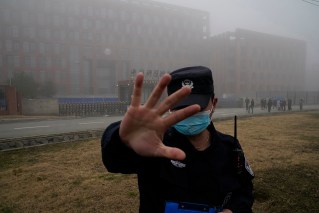Cancer spike in under-50s driven by accelerated biological ageing, study suggests

Source: ITV
Why is it that over the past 30 years or so the number of people with early-onset cancer has increased dramatically?
Early-onset cancers are those diagnosed before the age of 50 – and this upward trend shows no sign of slowing.
Most people weren’t aware of the issue until Catherine, Princess of Wales, at the age of 42, was diagnosed with cancer, the type of which remains private.
These cancers on the rise include those of the breast, colon, cervical, oesophagus, kidney, liver, head and neck, prostate, bone marrow, and pancreas.
A 2023 study reported that the early-onset incidence of 29 cancers increased by about 79 per cent globally between 1990 and 2019.
Early-onset cancer deaths have risen by about 28 per cent during that time.
Some ideas as to why
During those past 30 years, as early-onset cancers took off, the obesity and type 2 diabetes epidemics also took off.
This suggests that poor diet and unhealthy living might be causing this spike in cancer among the under-50s.
It’s a reasonable conclusion, but it may not be the whole answer
Researchers from Washington University School of Medicine in St Louis have gone back to basics.
They asked: What if, since these early-onset cancers aren’t so much a consequence of chronological age (the number of years you’ve lived), what if they’re linked to the your biological age?
What is biological age?
Biological age is determined by the extent of damage you’ve accumulated at a cellular and physiological level over time.
Biological age is determined by your diet, lifestyle (exercise, sleep and levels of stress), genetics and diseases you’ve experienced or continue to be plagued by. Your chronological age is also a factor.
“If you’re a 28-year-old male who doesn’t exercise, only eats high-fat foods, and has smoked five packs of cigarettes per day for the last 10 years, it’s likely you would have a biological age of greater than 28 years,” an example from Healthline reads.
It seems, then, common sense that your biological age (the shape you’re in) would affect cancer risk. If your biological age is accelerated (sped up by how you’re living).
Proving it scientifically is a different matter.
The new study
For this study, researchers analysed the data of more than 148,000 people in the UK Biobank.
According to a report in Medical News Today, each participant’s biological age was calculated from readings of nine biomarkers in the blood.
- Albumin – the most common protein in the blood released by the liver. All-cause mortality increases as serum albumin levels decrease with age
- Alkaline phosphatase – blood enzyme that helps break down proteins
- Creatinine – a normal waste product in your body that helps measure how well a person’s kidneys are performing
- C-reactive protein – indicates inflammation in the body
- Glucose – the amount of sugar in the blood
- Mean corpuscular volume – measures the size of red blood cells. Variability in the size of red blood cells increases with age, probably a fundamental process of ageing
- Red cell distribution width – the researchers were looking for abnormalities in the shape and size of red blood cells
- White blood cell count – measure the number of white blood cells (which are part of the body’s immune system) in the blood
- Lymphocyte proportion – measures the amount of a specific type of white blood cell called lymphocytes in the blood.
If a study participant’s biological age was higher than their chronological age, they were deemed to have accelerated ageing.
After analysing biological age and accelerated ageing data, the researchers found that participants born in or after 1965 had a 17 per cent increased likelihood of accelerated ageing compared to those born between 1950 and 1954.
That is, about one in six people born since 1965 are ageing biologically faster (are in worse shape) than Baby Boomers.
Researchers discovered accelerated ageing was associated with higher risks of developing these early-onset cancers.
The strongest associations were:
- Lung cancer – 42 per cent increase
- Gastrointestinal cancer – 22 per cent increase
- Uterine cancer – 36 per cent increase.








